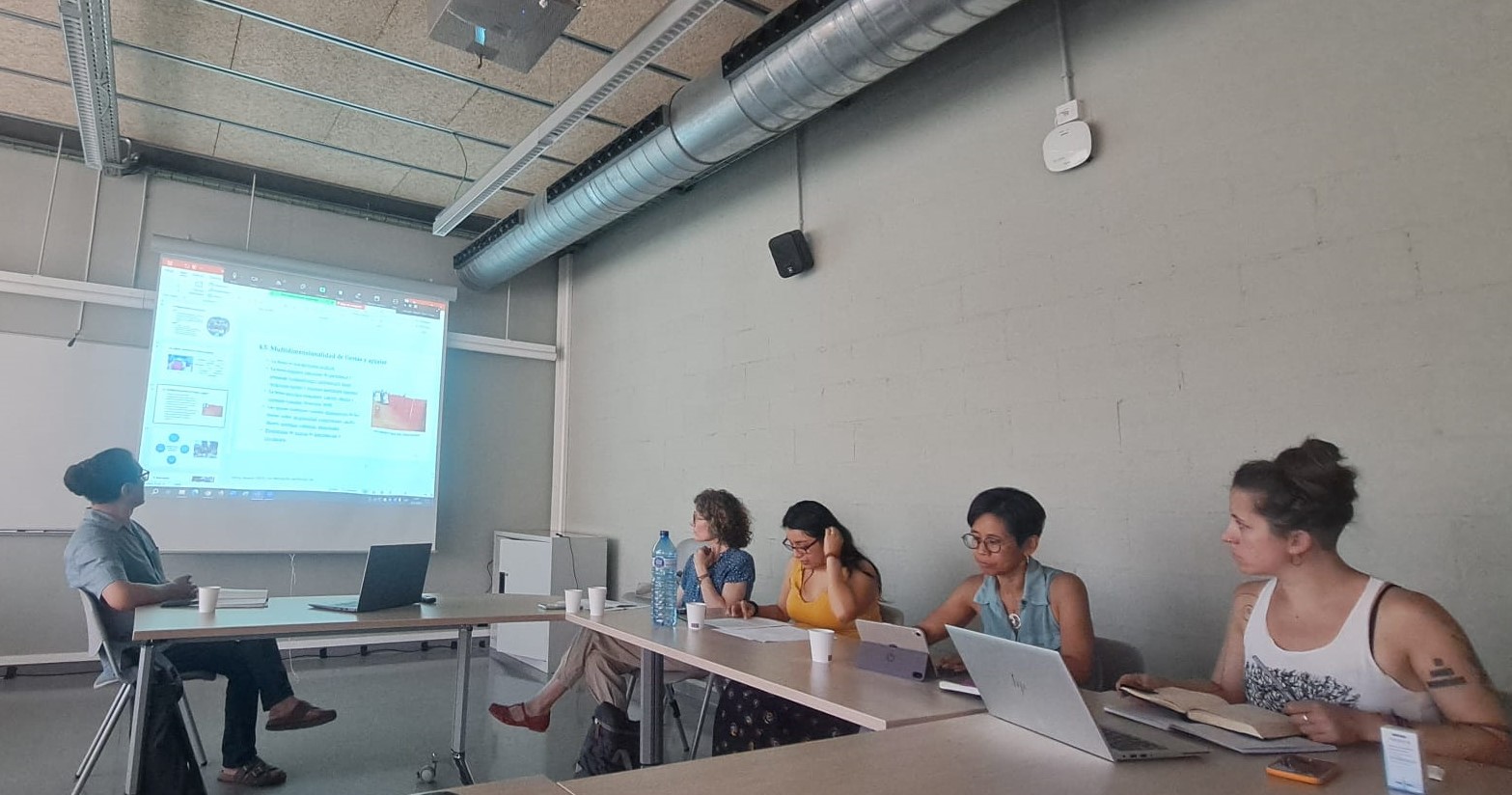02 Sep 2024 | Juliane Müller
Indigenous logics – Indigenous economies: Perspectives from the Andean Americas
The international workshop Indigenous logics – Indigenous economies: Perspectives from the Andean Americas was hosted by the Department of Social Anthropology at the University of Barcelona and co-organized by the ERC project ‘Indigeneities in the 21st century’ (LMU) on 22 July 2024. It set out to explore Indigenous economies as distinct from and at the same time connected to wider political-economic forces and developments. We tried to understand how different logics operate and intersect, and how different values get inflected and reconfigured. Cristina Cielo from FLACSO (Quito, Ecuador) opened the workshop introducing important concepts and notions that accompanied us the entire day as we thought through the articulation and distinctiveness of Indigenous economies. She compared how yucca production was influenced differently by neoliberal transformations in coastal and Amazonian communities in Ecuador. To make sense of these differences, she suggested that we need a "political economy of various ontologies" that recognizes "affective ecologies"[1] while historizing and politicizing them.
 Researcher Doris León Gabriel (in the center) presents her findings about festive culture in the Peruvian highlands and its relationship to trade and production. Photo: Shirley Samit Oroz.
Researcher Doris León Gabriel (in the center) presents her findings about festive culture in the Peruvian highlands and its relationship to trade and production. Photo: Shirley Samit Oroz.
The next four presentations complemented each other by engaging with Andean highland popular and Indigenous economies through a triple gaze: 1) the long durée of native commercial practices, networks, and infrastructures in the midst of colonialism and capitalist expropriation and exploitation, 2) contemporary neoliberalism and its influence on traders' subjectivities and aspirations, and 3) the cognitive and cosmological dimensions of urbanized Aymara economies. Doris León Gabriel from the University of Bonn highlighted the multiple values and capitals that circulate between Puno and Lima within festive and ritual circuits, making it impossible to analytically separate "the economy" from other social realms. Ruben Chambi unfolded the meanings of the qhatu in the city of El Alto: The linguistic root of the word hints to a sense of "capturing" a selling spot, whereas it is also a base for people's family and economic life in contemporary El Alto. Carmen Ibáñez from the Free University of Berlin traced highland Indigenous modernities and modern subjects from the 16th century q'ateras (native market women) in Potosí to today’s traders. She conceptualized the Andean market as a "social laboratory" for interrogating Indigenous rationalities (very much opposed to assumptions about the homo economicus) that are manifested in persisting institutions: Pasanaku (rotating credit), compadrazgo (godparenthood), and estocamiento (stocks). Raúl Rodríguez from Rutgers University laid out the intersecting political-economic dynamics on different scales that help to make sense of the becoming of an "enriched" Aymara trader: A qamiri (rich in a holistic, economic, social, and cosmological sense).
Finally, Cecilie Ødegaard from the University of Bergen invited us to focus on heterodox notions of sovereignty to grasp how different claims for authority operate at the same time, and how various forms of authority, violence, and welfare intersect and compete for territorial and economic control. The Andean contraband traders (at the Peruvian-Bolivian border) she worked with questioned the state’s legitimacy at the territorial border and its fiscalizing authority, making implicit claims about "popular sovereignty" or "sovereignty otherwise".[2] At the same time these traders were not mimicking capitalist regimes of value, but rather translating and converting them into their own, partially connected life-making projects.
In the future, we will continue our collaboration through a joint publication on Indigenous economies that includes the workshop participants and further scholars from the Andes and El Alto in particular.
_____________________________
[1] Kohn, Eduardo. 2013. How Forests Think: Toward an Anthropology Beyond the Human. Berkeley: University of Press.
[2] Cattelino, Jessica. 2008. High Stakes: Florida Seminole Gaming and Sovereignty. Durham: Duke University Press.

